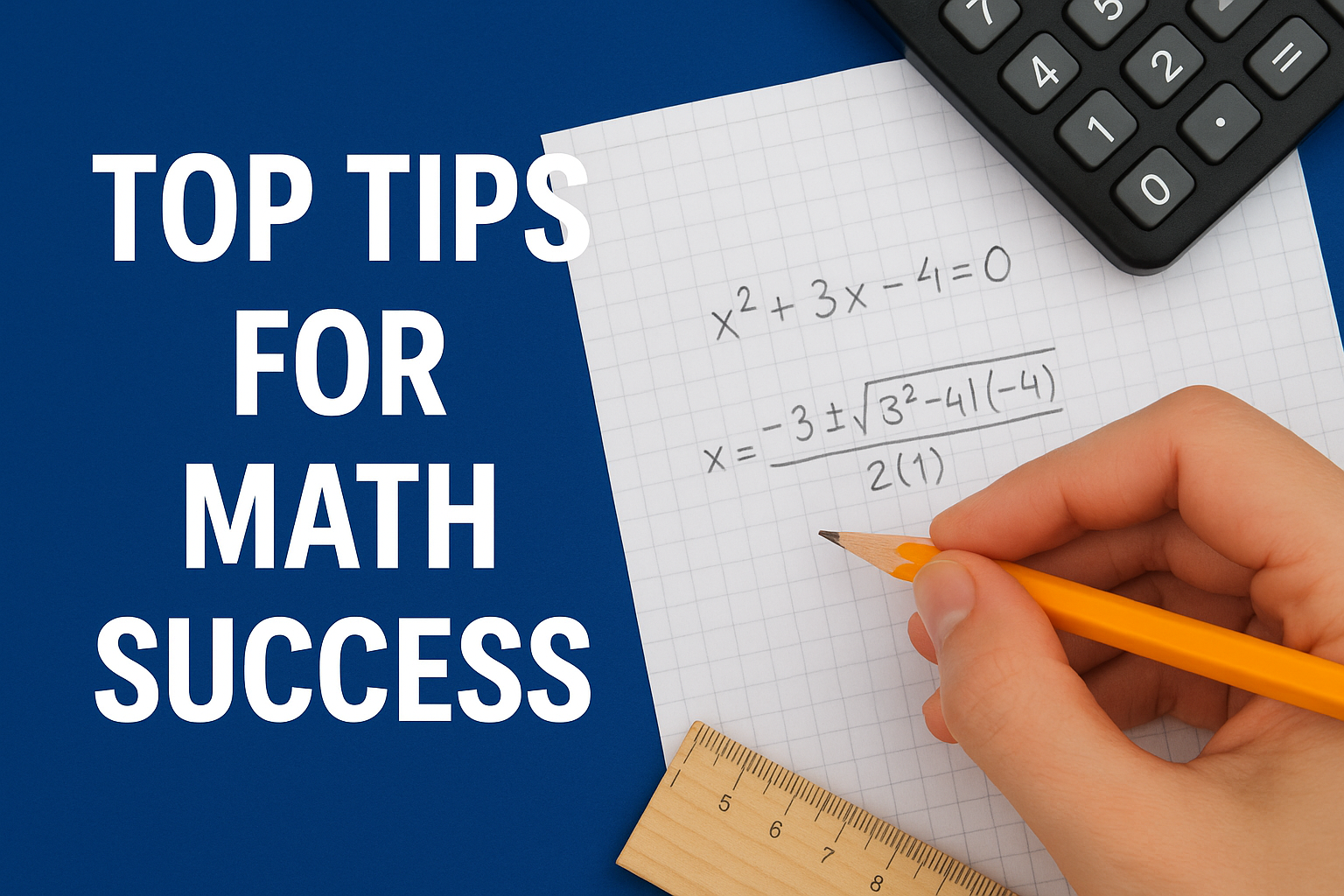Practical strategies to build confidence, understanding, and strong results in math.
Math success isn’t about being “born smart”; it’s about practice, strategy, and the right mindset. Whether you’re prepping for a test, tackling homework, or learning a new topic, these tips will help you study smarter, stay motivated, and improve your problem-solving skills.
1. Build a strong foundation
Math topics stack on each other. If basics are shaky, later topics become much harder. Regularly review fundamental concepts—fractions, decimals, algebraic manipulation, and arithmetic rules—so new material makes sense rather than feeling like a jumble of rules.
2. Practice deliberately, not just passively
Active practice is the key. Work through problems by hand, explain steps aloud, and try a mix of routine and challenging problems. When you get a problem wrong, don’t skip it—analyze the mistake and redo it until you understand why the correct method works.
3. Break problems into smaller steps
Complex problems often become manageable when you break them into smaller, clear steps. Write out intermediate results, label parts of the problem, and solve one piece at a time. This reduces errors and reveals patterns.
4. Use multiple representations
Translate problems between symbols, words, tables, and diagrams. A graph or sketch can make relationships clear, while writing the problem in plain language helps ensure you’re solving the right thing.
5. Create a study routine
Short, consistent sessions beat last-minute cram sessions. Aim for regular daily or alternate-day practice blocks (30–60 minutes) focused on mixed problems so you retain concepts and improve fluency.
6. Learn the “why,” not just the “how”
Memorizing procedures helps short-term, but understanding why formulas and methods work builds transferable skills. Ask yourself: “Why does this step follow?” or “What principle justifies this move?” Deeper understanding reduces reliance on rote memorization.
7. Use quality resources and ask for help
Textbooks, online videos, practice sites, and tutors can offer different perspectives. If you’re stuck, ask a teacher or peer—explaining your thinking aloud often helps others quickly find the misunderstanding.
8. Keep organized notes and a formula sheet
Maintain a tidy notebook with solved examples, common techniques, and a personal formula sheet. Creating your own summary reinforces memory and gives a fast review tool before tests.
9. Emphasize error analysis
Treat every mistake as a learning opportunity. Log common errors, their causes (e.g., calculation slip, misread question, conceptual gap), and corrective actions. Over time this reduces repeated mistakes.
10. Build math habits and a positive mindset
Confidence grows with effort. Celebrate small wins, stay patient with slow progress, and view challenges as puzzles rather than threats. A growth mindset—believing ability improves with practice—boosts perseverance and results.
